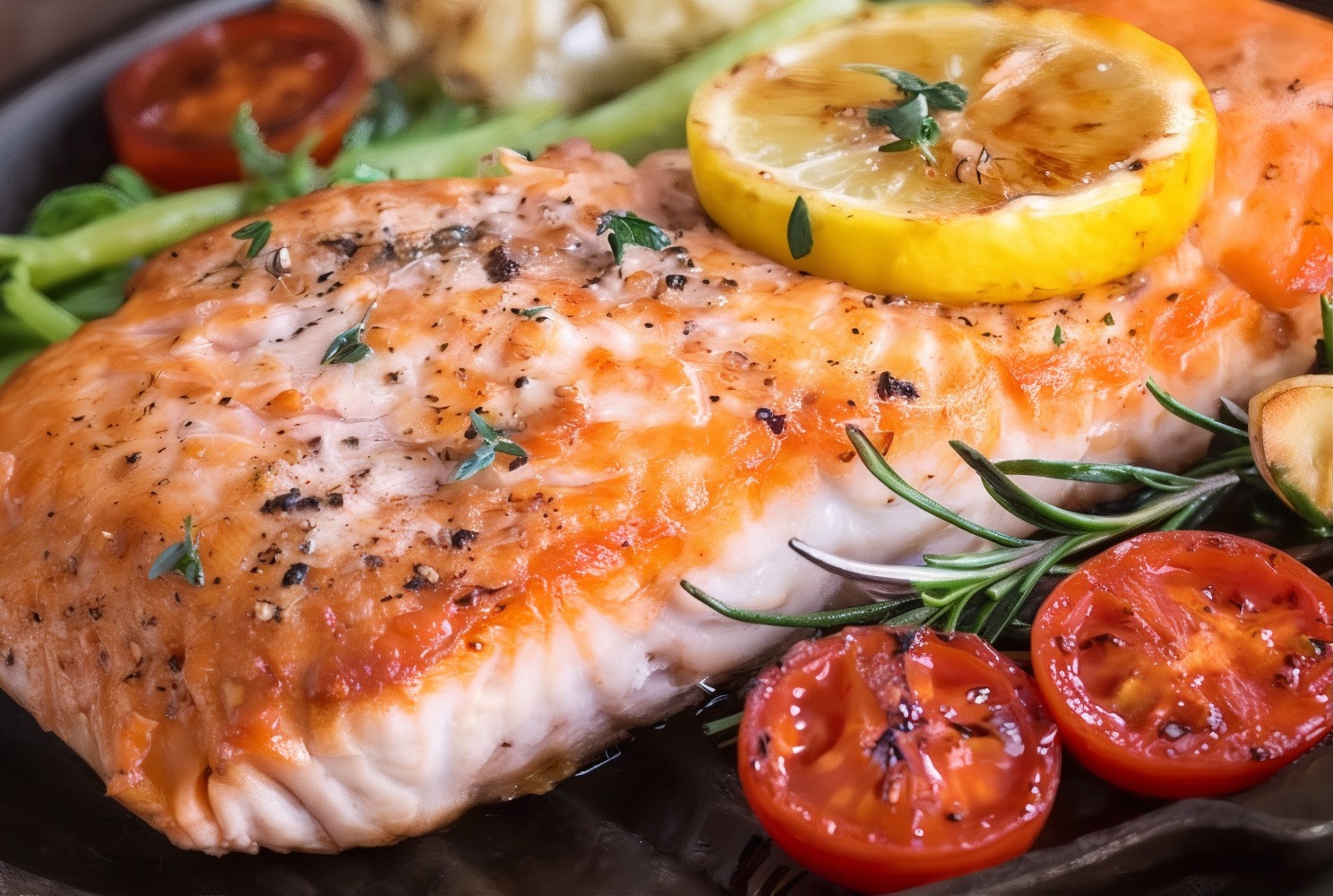Protein is essential for life – it’s a building block of every human cell and is involved in the vital biochemical functions of the human body. It’s particularly important in growth, development and tissue repair.
It’s also an important part of your diet when it comes to achieving or maintaining a healthy weight. Protein can boost weight loss as part of a balanced diet. Adding more protein to your diet can help you:
1. Feel full for longer
The effects of protein on appetite and hunger management are key contributors to weight management. It is invaluable when it comes to increased fullness and satisfaction after a meal. Knowing how to use this key nutrient as part of a balanced diet puts the odds of losing weight on your side.
Eating a protein-rich diet helps reduce your appetite and manage your hunger levels. This means you are able to consume fewer calories than if you were eating higher portions of carbohydrates and fats.
Protein takes longer to digest than other types of nutrients, so can keep you satisfied for longer. This can potentially help you stave off snacking and cut some calories without you even noticing it.
Protein’s satiety effects are partly due to its effects on hormones that control hunger and fullness signals in your body. Protein reduces levels of ghrelin, also known as the “hunger” hormone. Protein also increased levels of cholecystokinin and glucagon-like peptide-1 (GLP-1), two hormones responsible for digestion and signaling fullness.
If you have a goal of losing weight, consider replacing some of your carbohydrates and fats with protein-rich foods at each meal and snack during the day.
Eating a higher protein diet over longer periods of time has been linked to eating less and weighing less. Studies have shown, people who eat protein-rich diets went longer between meals and ate less at meals.
Protein is more filling than carbohydrates and fats, leading to a feeling of fullness and reduced cravings, which can help you eat fewer calories throughout the day. If you don’t eat enough protein, you are more likely to eat larger amounts of other foods to fill up. That can lead to a higher calorie intake overall.
Benefits of a protein-rich diet:
Protein is filling
One of the biggest benefits of consuming protein is that it fills you up without adding too many calories to your diet.
The energy in protein-rich food is released slowly so you stay fuller for longer after eating. Compare this to high GI refined carbohydrates (sugar-rich and starchy foods), which give you a big energy spike right after eating followed by a sudden energy drop.
If your meals keep you full after eating, there is less chance you will experience intense hunger cravings causing you to grab a quick – and usually unhealthy – snack soon after.
New research suggests that protein should be spread evenly across all meals, and especially at breakfast. For most this means eating more protein at every meal and snack during the day.
2. Preserve lean body mass
Ensuring adequate protein intake is crucial for maintaining muscle mass during weight loss, which is important for metabolism and overall health. Normally when you are eating less for weight loss, you mainly lose body fat, but you also lose some muscle mass.
Healthy firm and toned muscle don’t just help you look good – it is essential for supporting your joints and bones and keeps your metabolism humming away, so you want to minimise loss as much as possible.
Enter protein, which helps reduce the loss of muscle mass during losing weight. So its not about eating less, its about eating BETTER! Its not about taking away, its about ADDING to your diet.
Increasing the amount of protein you eat can help reduce the buildup of harmful fats in your body, especially around your belly (abdomen). Protein is used to build muscle, so it can also help prevent muscle loss as you shed pounds.
3. Use more calories to digest foods
Protein increases your body’s thermic effect of food (TEF), meaning your body burns more calories to process protein than it does for carbohydrates or fats.
When you eat, your body burns calories as it breaks down food, absorbs nutrients and turns food into energy for your body. This is called the thermic effect of food (TEF).
Your body burns more calories digesting protein than carbohydrates, so protein has a higher TEF. Just by eating protein, you are already burning more calories. That’s good news if you are trying to burn an extra calories each day in order to lose weight.
Healthy sources of protein
You can find many widely available and affordable sources of protein. Animal-based foods, such as meats and eggs, provide protein that can be more easily absorbed and used by your body than plant-based proteins.
Recommended sources include:
Eggs (all types) or egg whites
Dairy, including milk, cheese or yogurt
Fish and seafood, like trout, salmon or sardines
Legumes, such as chickpeas, green peas, kidney beans or lentils
Meats, like chicken, lean beef, turkey or pork
Nuts, grains and seeds, including nut butter
Tofu
Protein supplements
Including protein at every meal and snack will help you feel fuller longer, increasing satiety, and boosting metabolism (the rate you burn fuel). Aiming for 20-30 grams of protein per meal. Only a certain amount of protein (25 to 35 grams) can be absorbed and used at once. So it’s a good idea to eat smaller amounts of protein throughout the day, rather than a lot at one meal.
The recommended percentage of daily calories from proteins is typically 10% to 35% protein. Protein contains 4 calories per gram. This means, if you eat about 2,000 calories per day, you would want to aim for 50 to 175 grams of protein in your daily diet.
Maintaining the weight you lose
Getting the right amount of protein as part of a balanced diet is only part of the goal when it comes to achieving a healthy weight. The rest involves changing unhealthy lifestyle habits and exercising regularly to stay healthy.
Lastly, no matter what kind of eating plan you are on, it’s almost always going to be more successful with an exercise component. You also have to maintain that calorie deficit to maintain your weight loss over time. Adding protein AND EXERCISE to your diet can help you meet your nutrient needs and your health goals, day by day.
Most diets can be a source of frustration for a lot of people. They often involve strict meal plans, unrealistic expectations, and a lack of long-term results, leaving individuals feeling defeated and overwhelmed. It’s no wonder that many are searching for a sustainable approach to weight loss, one that focuses on breaking bad habits and setting the foundation for lasting change.
The 21-Day Diet Reset is designed to do just that, offering an opportunity to reset your mindset and eating habits, while setting you on the path to achieving your weight loss goals.
You can read more about it here: 21 Days To Healthy Eating


